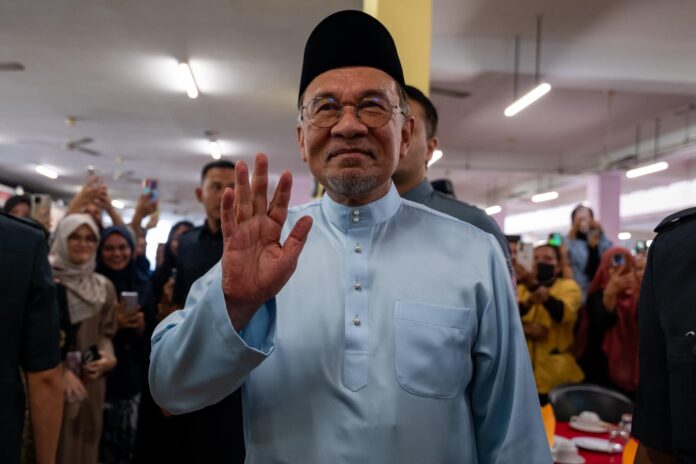
KUALA LUMPUR — The exemplary leadership of Datuk Seri Anwar Ibrahim on both the domestic and international stages has underscored the growing difficulty in finding a successor within PKR.
Political analyst Associate Professor Dr Mazlan Ali from Universiti Teknologi Malaysia (UTM) noted that Anwar’s current success poses a significant challenge for the party, as it needs someone charismatic and capable to continue his legacy, especially for the crucial ‘number two’ position within the party.
Mazlan explained that a well-structured power transition plan is essential for any political party to provide confidence to voters and the public.
He pointed out that while Datuk Seri Rafizi Ramli and Datuk Seri Saifuddin Nasution Ismail are often mentioned as possible successors, other names, particularly Selangor Menteri Besar Datuk Seri Amirudin Shari and Speaker of the Dewan Rakyat Tan Sri Johari Abdul, should also be considered.
“The excellence, performance, and achievements of Anwar have made it difficult for anyone to clearly emerge as his successor within PKR. His leadership has created a gap in the party, and PKR must now reassess who can step up to fill that role,” Mazlan said.
“Before Anwar became Prime Minister, people viewed Rafizi as the likely candidate for president. However, that is no longer the case. The question now is whether Rafizi can reach Anwar’s level of leadership, or if PKR should consider other candidates like Amirudin, who is seen by many as a future leader for the party.”
He added that PKR now needs to reassess its potential leaders to succeed Anwar, as the current deputy appears unable to match the president’s performance.
“This means PKR is now more open, and other leaders within the party may offer themselves to run for the deputy president position and continue Anwar’s legacy.”
PKR has announced that elections for the Central Leadership Council, Women’s Central Leadership, and Central Youth Wing will take place on May 24.
Anwar is expected to continue in his role as PKR president during the elections, which will also mark the final term of his presidency, as the party’s constitution allows each president to serve for a maximum of three terms.
Geostrategist and Senior Fellow at the Nusantara Strategic Research Academy (NASR), Associate Professor Azmi Hassan, said the upcoming contest for the deputy president position would be a critical one.
“Even though Anwar’s final term as president will only last three more years, the deputy president will play a pivotal role during the 16th general election (GE16),” he said.
“The number two person in the party will be tasked with defending Anwar’s position, not just as president but also as prime minister after GE16.
“The deputy president role is significant, particularly as PH (Pakatan Harapan) or PKR may face GE-16 near the end of Anwar’s presidency. That is why the deputy position is so crucial.
“Logically, I would see Rafizi as the candidate, but if we look at PKR’s internal politics, that message is not currently being conveyed in the party. This is why it is expected that the home minister will contest the position once again,” Azmi added.
Meanwhile, political analyst Associate Professor Awang Azman Awang Pawi from the University Malaya’s Centre for Democracy and Elections (UMCEDEL) argued that whoever wins the deputy president position in this election may not be seen as a clear successor to Anwar.
“Anwar has fulfilled the best leadership criteria in PKR in terms of international relations, whether with the Arab world, the United States, or ASEAN. He is regarded as the best,” he said.
“Therefore, anyone who succeeds him, or more precisely his deputy within the party, will need to follow in that direction. They must have strong international connections and remain close to the grassroots,” added Awang Azman. – January 31, 2025



